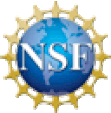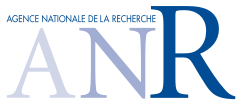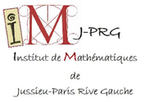Measurable, Borel, and Topological Dynamics
Dynamique mesurable, borélienne et topologique
7 – 11 October 2019
|
Scientific Committee
Comité scientifique Damien Gaboriau (CNRS/ENS Lyon) |
Organizing Committee
Comité d’organisation Clinton Conley (Carnegie Mellon University) Julien Melleray (Université Lyon 1) Todor Tsankov (IMJ-PRG Université Paris Diderot) Robin Tucker-Drob (Texas A&M University) |
|
It is said that groups, as people, will be known by their actions. This is one of the guiding principles of the study of dynamical systems, and the proposed conference aims at bringing together researchers working in the domains of Measurable, Borel, and Topological Dynamics. While these domains are closely related at a fundamental level, the techniques are often quite different; our main objective is to foster interaction and exchange of ideas between researchers working in one (or more) of these fields. It seems to us that this is the right time to push further the interplay between measurable, topological and Borel dynamics, which is already quite rich and deserves to be popularized. We hope that this conference will help achieve this goal; and we feel that it is important to have young people attend the meeting and have them become acquainted with techniques and ideas from all three areas. For this reason, we plan to leave some time in the program for open discussion between participants, as well as hold problem sessions.
The interaction between the three domains may manifest at the level of the fundamental questions studied in each ; or by the fact that ideas from one domain are used to solve a problem in another, or even that definitions from one domain lead to interesting new notions and research in another. The Borel setting, which was once mainly of interest to logicians, is now being intensely studied and ideas from that domain are percolating towards the others. Given the high level of activity in the three domains we are discussing here, and the emergence of Borel dynamics as a purveyor of new results and ideas, the time seems ripe for helping disseminate these techniques, and consolidate some exciting new directions of research. |
On dit que les groupes, comme les hommes, sont compris à travers leurs actions. C’est là un des principes fondateurs de la théorie des systèmes dynamiques, et cette conférence a pour but de rassembler des spécialistes de dynamique Mesurable, Borélienne et Topologique. Bien que ces trois domaines soient par nature intimement liés, les techniques utilisées sont fréquemment très différentes. Notes objectif principal est d’encourager les interactions et échanges d’idées entre spécialistes d’un (ou plusieurs) de ces domaines. Il nous semble que le moment est propice pour développer plus avant l’interaction entre dynamique Mesurable, Borélienne et Topologique, déjà très riche et qui mérite d’être popularisée. Nous espérons que cette conférence représentera un pas dans cette direction; il nous semble important que de jeunes chercheurs et chercheuses participent à la conférence et se familiarisent avec les techniques et idées des trois domaines. Pour cette raison, nous comptons organiser la conférence de façon à laisser du temps pour des discussions informelles ainsi que pour des séances de problèmes.
L’interaction entre les trois domaines qui nous concernent ici est particulièrement visible lorsqu’on observe les questions fondamentales qui y sont étudiées; ou lorsque les idées d’un domaine sont utilisées pour résoudre un problème d’un autre, voire lorsque les définitions introduites dans l’un amènent à l’apparition de nouvelles notions et directions de recherche dans un autre. Le contexte Borélien, qui fut un temps simplement d’intérêt pour les logiciens, est maintenant étudié intensément et des idées de ce domaine percolent vers les autres. Au vu du haut niveau d’activité dans les trois domaines discutés ici, et de l’émergence de la dynamique Borélienne comme outil pour obtenir des idées et résultats nouveaux, il semble que ce soit le bon moment pour aider à disséminer ces techniques et consolider de nouvelles directions de recherche prometteuses. |
Miklós Abért (MTA Alfréd Rényi Institute of Mathematics) Eigenvectors of Riemannian manifolds, Berry’s conjecture and Benjamini-Schramm convergence
Anton Bernshteyn (Carnegie Mellon University) Multiplication of weak equivalence classes
Pierre-Emmanuel Caprace (Université catholique de Louvain) Dynamical features of non-discrete simple locally compact groups
Gábor Elek (Lancaster University) Free amenable actions of nonamenable groups
Anna Erschler (Ecole Normale Supérieure Paris) Non-free actions on the Poisson boundary
Alex Furman (University of Illinois at Chicago) Super-rigidity, Weyl groups, and hyperbolic structures
Su Gao (University of North Texas) Vershik’s Conjecture, Ultraextensive Spaces, and the Herwig-Lascar Property of Groups
Tom Hutchcroft (University of Cambridge) Kazhdan groups have cost 1
David Kerr (Texas A&M University) Dynamical alternating groups, property Gamma, and inner amenability
Yoshikata Kida (University of Tokyo) Groups with infinite FC-center have the Schmidt property
Aleksandra Kwiatkowska (University of Wrocław) Simplicity of the automorphism groups of order and tournament expansions of ultrahomogeneous structures
Nicolás Matte Bon (ETH Zürich) Left-orderable groups associated to Cantor dynamical systems
Hiroki Matui (Chiba University)
Volodymyr Nekrashevych (Texas A&M University) Constructing simple groups using dynamical systems
Oleg Pikhurko (University of Warwick) Circle squaring with Jordan measurable pieces
Friedrich Martin Schneider (TU Dresden) Concentration of measure, classification of submeasures, and dynamics of L_0
Brandon Seward (University of California at San Diego)
Kostya Slutsky (University of Illinois at Urbana-Champaign) Orbit Equivalence Relations of Borel Flows
László Márton Tóth (EPFL) Invariant Schreier decorations on unimodular random graphs
Tianyi Zheng (University of California, San Diego)
Andy Zucker (Université Paris Diderot IMJ-PRG) Minimal models for pmp actions






